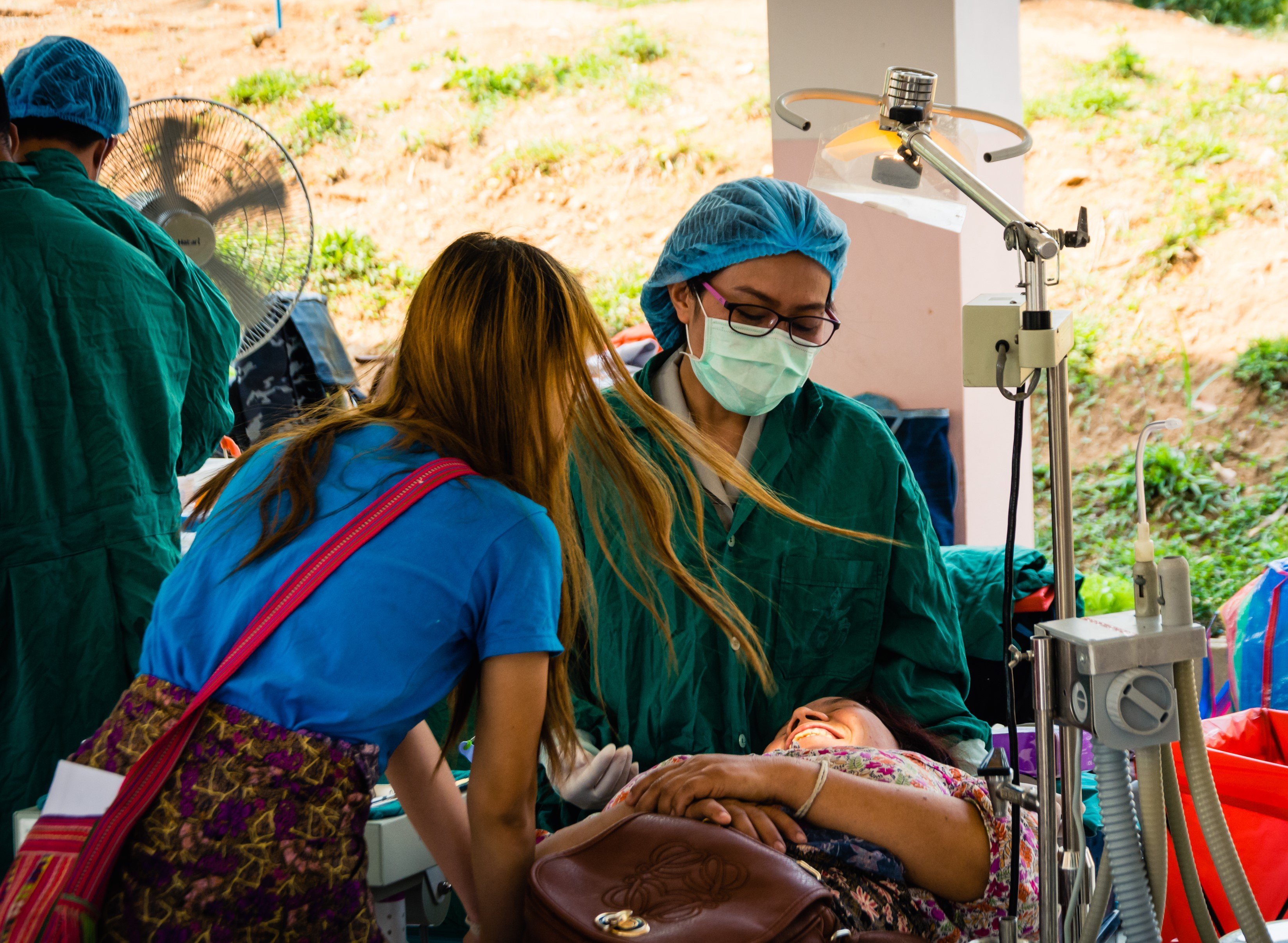Whether you are just beginning your medical school application process by compiling a list of programs that interest you, or if you are choosing one program from multiple acceptance offers, chances are you have referred to a ranking of medical schools. There are a number of such lists, many available online, and each ranking relies on a unique methodology when judging programs. These lists can be very helpful when investigating the differences between medical schools, but they should not be the sole factor when making decisions about where to apply and where to attend. Consider these three guidelines, which can help you best use medical school rankings:
Pre-Medical
The path to becoming a physician is long and challenging, and being a pre-medical student is hard. Learn about what you need to do to get into medical school successfully.
A Guide to a Successful Gap Year
It wasn’t so very long ago that the typical medical student went straight from high school to a premedical program and then onto medical schools itself. This traditional pathway, however, is not so traditional anymore. The question of a gap year is one which comes up more and more frequently nowadays–and it is also one which can cause aspiring medical students a lot of anxiety as they make the decision about whether to take time off from academia when the undergraduate work is finished.
This article covers different aspects of the gap year, including the reasons why students take it, the fact that is it actually becoming more popular among pre-med students and different opportunities that students can take advantage of during this year off.
Time to Start Thinking About Your Medical School Application
If you are planning to start medical school for the 2017 Fall Semester, it’s already time to start thinking about your application!
You will apply using the American Medical College Application Service® (AMCAS®) for your medical school applications – the 2017 application cycle opens in early May. AMCAS is the primary application method used by most US medical schools. For you, this means that you’ll submit only one online application, regardless of the number of medical schools you choose to apply to.
We’ve highlighted tips and resources to help you begin to prepare for completing your application whether you are applying for this upcoming cycle or sometime down the road.
5 Soft Skills Every Pre-Med Student Needs
Though the emphasis of the medical school application process lies on academic achievement, there are a number of personal qualities that pre-medical students should strive to develop if they wish to become superior physicians. The development of these soft skills may also make students more competitive medical school applicants when they are evident in interviews and letters of recommendation. Such soft skills include:
1. The ability to work effectively in a team
Modern medicine requires immense coordination between various clinicians and providers. Doctors must collaborate with nurses, social workers, specialists, therapists, and others in order to adequately care for their patients in today’s complex medical and social climate. The ability to lead and to collaborate with team members is a necessity for today’s medical trainees. Pre-medical students can develop this skill while working in a team setting in their college coursework (e.g. group projects and presentations), extracurricular activities (e.g. student government and student interest groups), and other major experiences (e.g. philanthropic organizations and research laboratories). Students should actively strive to lead, but they should also work to see the perspectives of all team members, and to incorporate effective strategies to help their team meet common goals.
Spring Break: Should You Spend It On The Beach Or At The Bench?
For most researchers, working in the lab over a holiday break is somewhat different from working in the lab during the rest of the year. For example, if an experiment has flexibly, it can be started or stopped when it’s convenient for the researcher instead of planned around seminars, classes, and campus parking issues. In addition, some researchers take a vacation, adopt unconventional work hours, or hide in their office to work on a manuscript and only visit the lab to search for inspiration, a snack, or a temporary distraction.
I regularly direct several undergrad projects at the same time, work with other members of my lab team, and pursue my own research projects. And even though I enjoy mentoring my students, the researcher in me wants to take full advantage of holiday breaks. For me, a holiday break is an opportunity to set my work schedule as I please or conquer a particularly difficult experiment without being interrupted much. Alternatively, I might start an experiment, or run out to do errands and share a meal with friends, only to return to the lab when it’s convenient for me. I also want to spend some time relaxing—perhaps on my couch playing Halo—because I benefit from taking a break from directing other’s projects and thinking about how to solve a labmate’s bench woe.
Why Some Labs Don’t Train Premed Students and Why You Shouldn’t Care
So far, the vast majority of the undergrads I’ve trained during my research career have been premed students. With the numerous personal and professional advantages an in-depth research experience can provide, and how a successful research experience can support a medical school application, that is unlikely to change.
Most students prove to be an asset to my research team. They are motivated, dedicated, step up to extra responsibility without hesitation, and are helpful to their labmates. These are the undergrads who arrive at lab ready to work, ready to contribute, and ready to learn everything anyone is willing to teach them. These undergrads find the self-discipline to push through disappointment at the research bench, and like to be challenged—whether through learning a new technique, designing an experimental strategy, or interpreting data. They serve as ambassadors for their research and university at scientific meetings, present their projects at symposia, and occasionally, if all the stars align, earn coauthorship on a publication.
How to Prepare Answers to These Tricky Medical School Interview Questions
While medical school interviews can be quite conversational, thinking in advance about the questions you will face can help you articulate your unique story more effectively. Most interviews revolve around the interviewer getting to know you better, but there will likely be a number of questions that give the ill-prepared applicant pause. Below are several strategies to help you prepare answers to these tricky questions:
“Why do you want to study medicine?”
This question will be asked at almost every medical school interview that you attend, but it can be difficult to answer unless you have reflected on your goals ahead of time. Clearly explaining why you wish to become a physician—without being cliché—is paramount to distinguishing yourself. To prepare for this question, review your personal statement for inspiration. Aim to incorporate details that are not mentioned in your personal statement, but that are related to experiences or endeavors that you have described in your essay or in the remainder of your application. This can add depth to your admissions portfolio outside of what you have already explained on paper. In addition, truly attempt to define the type of medical career that you want (i.e. community medical practice, medical education, research, etc.). Weave in your career aspirations when you answer this question to connect your pursuit of medical school to your ultimate goals.
The Medical School Interview: They Aren’t All The Same!
“What kind of interview will it be?”
This is not a question applicants ever asked 10 or 15 years ago but often do now. Every year, more medical schools now conduct Multiple Mini Interviews (MMI) while most still conduct “traditional” one-on-one interviews. A few medical schools also conduct group interviews with either groups of students who are interviewed together or several faculty who interview one student together. Therefore, when thinking about the medical school interview process, it’s important to be aware of what you might encounter on the interview trail.
How To Get Great Letters of Evaluation for Medical School
Letters of evaluation are a vital component of the medical school application process. Since many applicants have high levels of academic achievement and robust extracurricular experiences, it is important for students to obtain outstanding letters of evaluation. Below are several key points to remember when requesting such letters:
Five Things to Consider in Choosing an MCAT Prep Course
With the Medical College Admissions Test (MCAT) undergoing major changes in 2015, the first revamp in over two decades, aspiring medical students are faced with new uncertainty in how to prepare for the crucially important exam. Many students are turning to dedicated MCAT prep courses to supplement their self-directed studies, only to be stymied by a market crowded with many alternatives. Here are some important questions to ask when selecting an MCAT prep course.
Attend a Pre-Med Fair – Connect with Admissions Officers and the AAMC
Why attend a pre-med recruitment fair? Pre-med recruitment fairs are great opportunities to learn about applying to medical school, admissions requirements, and resources all in one place! You’ll be able to engage with medical school admissions officers and representatives in person to learn about specific opportunities at their schools. You will find a variety of medical schools, programs, and associations, like the AAMC (Association of American Medical Colleges), that have a wealth of resources to support you on your path to medical school.
How My MCAT Study Plan Helped Me Go From the 30th to 90th Percentile
Download the 2023 Edition of the Nymeria 100-day MCAT study plan – rebuilt with all … Read more
How to Make the Most of a Medical School Visit
Once you have been selected for an interview at a medical school, you will have the opportunity to visit the campus. Though your priority during this visit will naturally be to excel in your interview, it is also important that you gather key information from various individuals so that you can make an informed decision when deciding which medical school to ultimately attend. Below are three tips on how to make the most of a medical school visit:
6 Tips for Med School Interviews
The interview is one of the most important steps in the medical school application process. It’s your chance to get to know the medical school in person while demonstrating good communication skills, professionalism, maturity, and your passion for medicine.
Below are six tips to help you make a good impression:
5 Things You Should Know About Secondary Applications
Unlike other graduate school admissions processes, where there is typically only one round of applications, medical schools often have a primary application and a secondary application. The secondary application generally involves one or more essay questions that are meant to help the admissions committee better understand your background, qualifications, and career aspirations. Below are five things you should know about medical school secondary applications.
Ensuring Fairness: An Interview with the Director of MCAT Security and Compliance
Updated March 3, 2022. The article was updated to correct minor grammatical errors and formatting. … Read more
Is Summer MCAT Prep Right for Me?
Preparing for the MCAT during the summer months is a choice that many pre-medical students make – and for good reason. Summer prep provides several advantages over simultaneously juggling coursework with MCAT review during the school year. However, students should also understand that summer prep can be more difficult in certain situations. Below are four questions to consider when debating whether or not to prepare for the MCAT over the summer:
1. Are you able to effectively multitask and prioritize?
One significant difference between preparing for the MCAT during the school year versus preparing for the MCAT during the summer is that summer prep often allows you to focus solely on MCAT review. Studying for the MCAT during the academic year – while also taking courses and participating in various extracurricular activities – requires well developed time management and prioritization skills.
If you currently struggle to manage multiple commitments during the school year (as is common for many pre-medical students who are stretched quite thin), then you may benefit from preparing for the MCAT during the summer months. Free of distractions, you will be better able to truly focus on this crucial exam.
How to Use Study Abroad to Set Your Medical School Application Apart
All in all, studying abroad provides students with invaluable personal growth, which will translate to … Read more
10 College Classes Pre-Meds Should Take
College as a pre-medical student can be challenging; unlike many other programs, pre-medical programs are … Read more
Picking the Right Medical School Program
There’s a popular phrase, “If you’ve seen one medical school… you’ve seen one medical school.” Every school is completely different, so it’s a good idea to thoroughly research what programs would be best for you before you start the application process.
What are you looking for?

When you’re deciding which medical schools to apply to, consider some of the same factors you weighed when applying to college: Are you looking for a public or private university? Do you want to attend school in your home state or out-of-state? You may also narrow your choices by considering the specialties offered or even which clubs and organizations are available to med students.



















